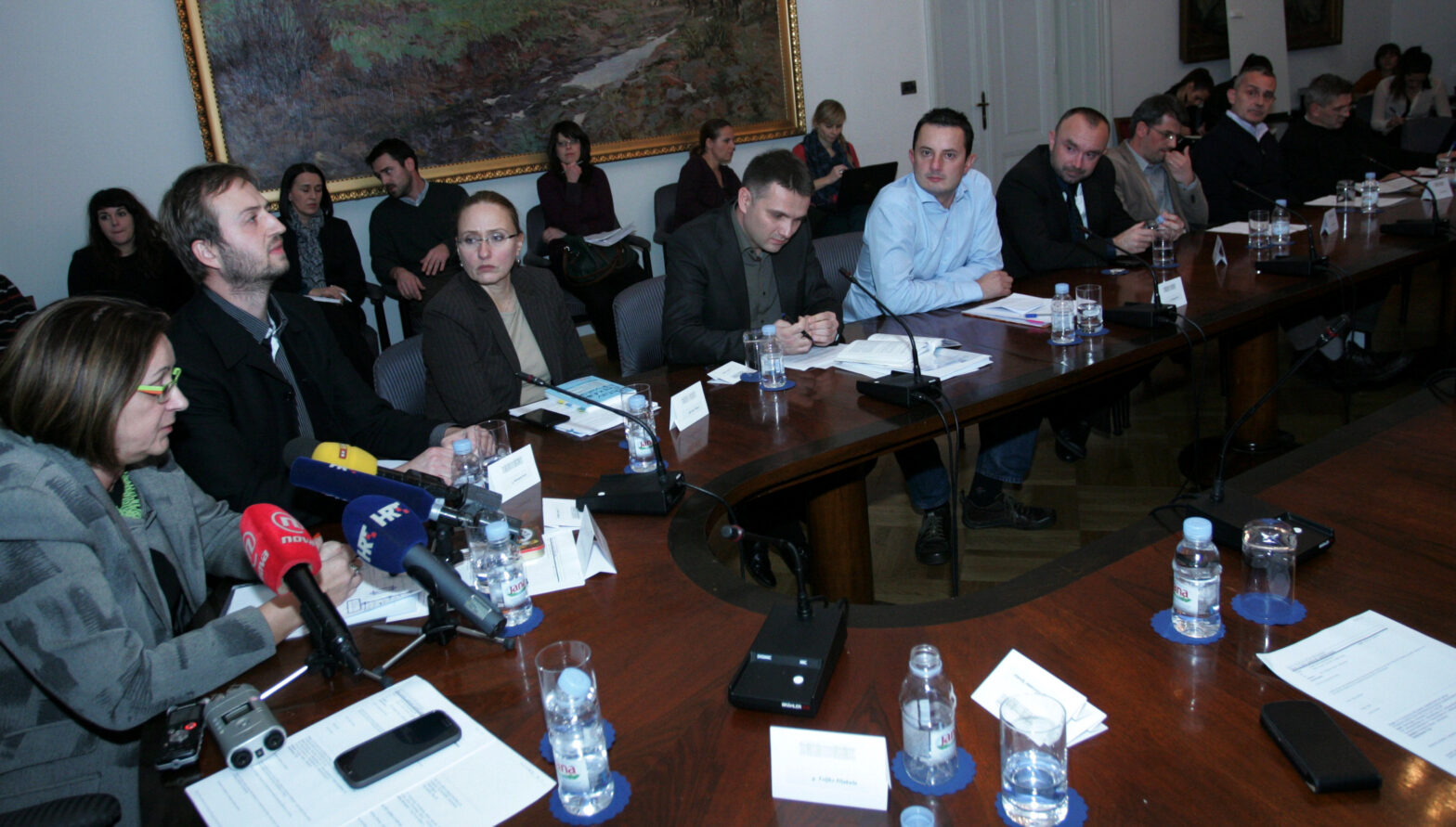The chair of the parliamentary Constitution Committee, Pedja Grbin, would not comment on Tuesday’s decision by the Constitutional Court that a six-day public discussion on constitutional changes was unacceptably short and that the procedure for amending the Constitution was in contravention of the constitutional provision on the rule of law as the highest value of the constitutional order.
Speaking to the press after a committee session on referenda, Grbin said he would not comment on the decision without reading it.
As for the accusations that the public discussion was too short, he said “certain initiatives are active in Croatian society at present that point to the need to urgently change some regulations. Not only the referendum initiatives but at this moment, I’m afraid, they are the most pressing.”
Dragutin Lesar of the Croatian Labour Party said the Constitutional Court “should not keep motions for the assessment of constitutionality in their drawers for six years but handle them within the democratic deadlines of six to 12 months, whereby they too would very much contribute to the strengthening of the constitutional order and legal security.”
He recalled that the Constitutional Court had not responded for more than two years to a motion to assess the constitutionality of the Family Act’s provision on marriage, which is the topic of a December 1 referendum at which citizens will decide if they want the Constitution to define marriage as a heterosexual union.
Lesar said he did not believe that the Constitutional Court would repeal the changes adopted in the procedure it was now saying did not conform with the Constitution.
Djordje Gardasevic of the GONG non-governmental organisation said the Constitutional Court had already warned that in every instance of amending the Constitution particular attention should be paid to the Constitution’s provisions on the rule of law.
He would not speculate if the Court would repeal the upcoming changes if the public discussion on them was not prolonged, but said today’s Court decision was a “serious statement”.
At today’s session of the committee, representatives of unions and NGOs as well as experts were agreed that the requirement for the validity of referenda, instead of the 40 per cent turnout envisaged in the draft constitutional changes, should be a certain turnout of all eligible voters.
They supported the Labour Party’s motion that the Constitution could be changed only if the change was supported by more than 50% of all eligible voters, an organic law with the support of at least 35% of all voters and other laws with the votes of more than 25% of the electorate.
All participants in the session endorsed a motion to reduce the number of signatures required to call a referendum to 200,000 but said it might be difficult to collect this number if the Referendum Act were to stipulate that signatures could be collected only in state administration offices.
